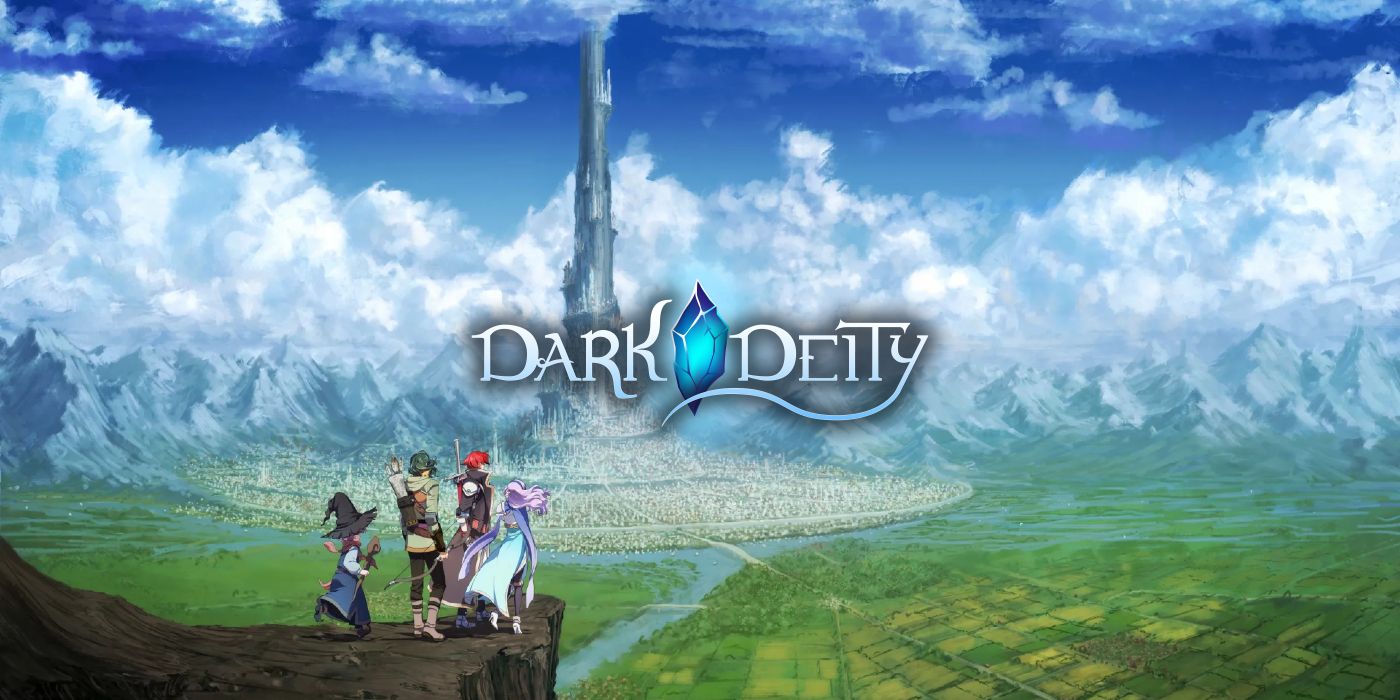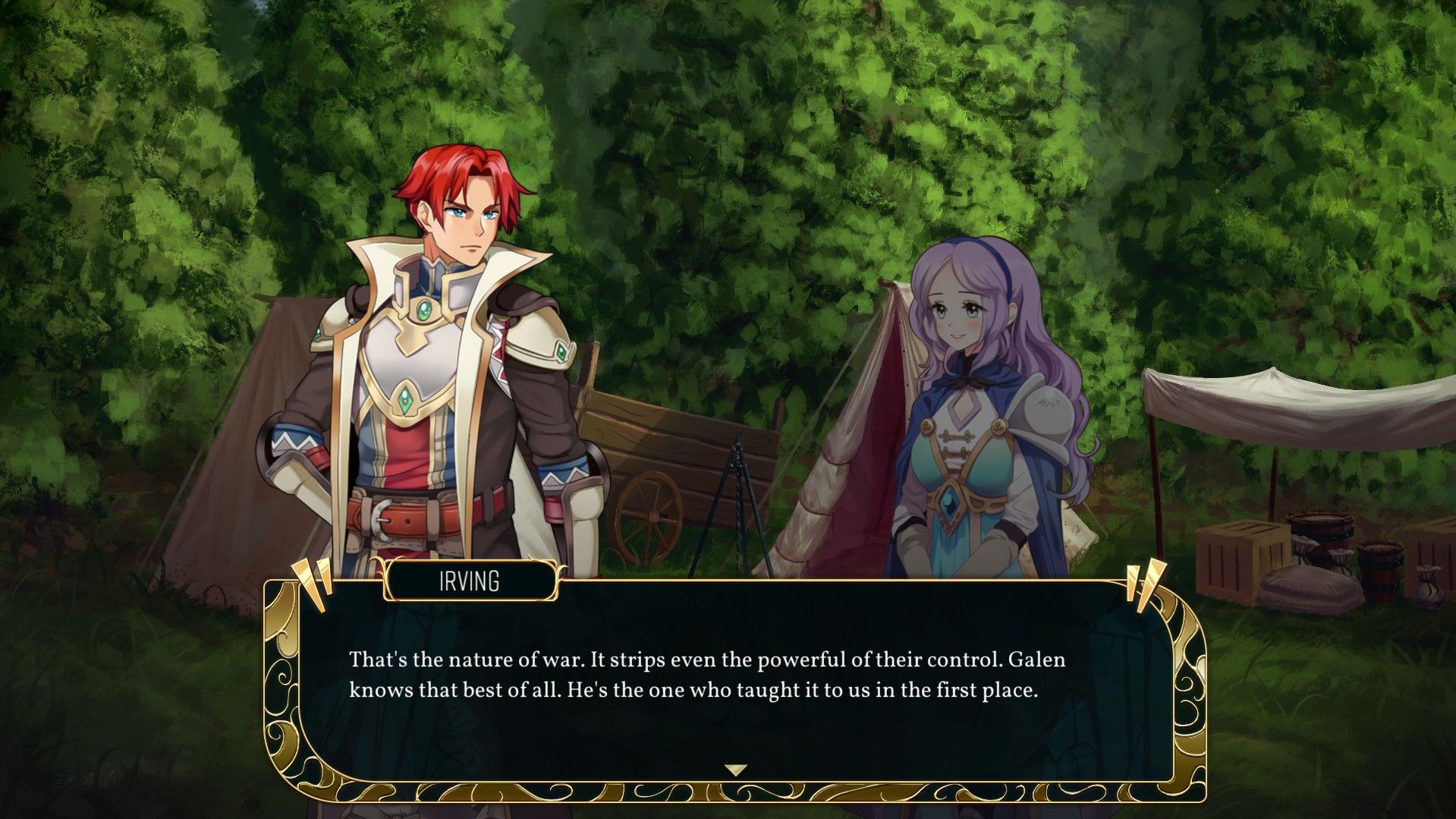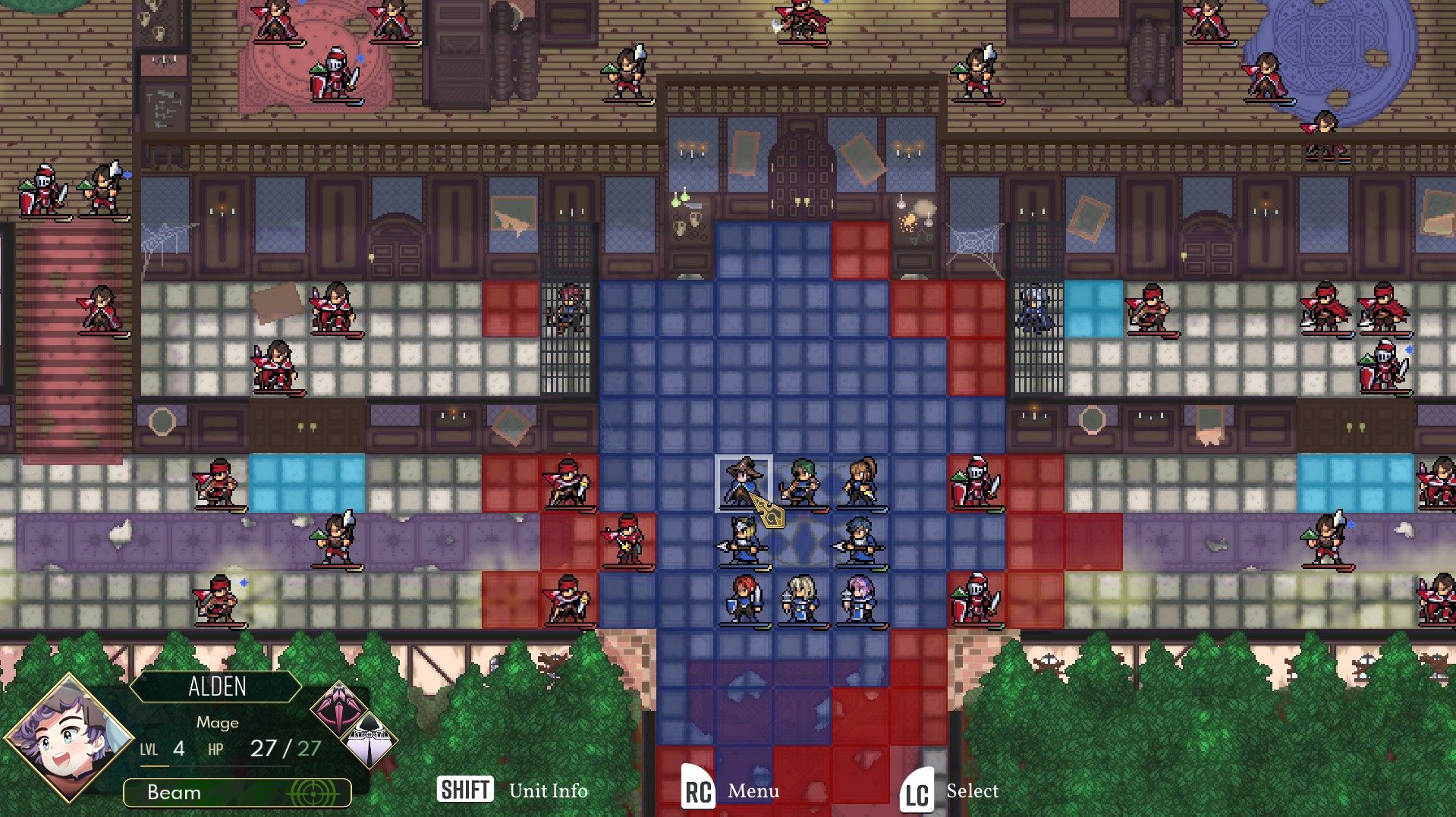
Dark Deity, from developer Sword and Axe and publisher Freedom Games, seems to have a very clear goal in mind: Bring Nintendo's classic Fire Emblem series gameplay to the PC. That being said, there's a lot of small things that might sway fans of Fire Emblem one way or the other when it comes to Dark Deity, and for those who aren't steeped in the lore of Three Houses or the Genealogy of the Holy War, Dark Deity may make for a hassle free intro to strategy roleplaying games.
Dark Deity is a strategy roleplaying game in which players control a band of heroes as they travel from battle to battle, defeating enemies and progressing through a character driven narrative. The meat of the gameplay revolves around a turn based combat system. On the player's turn, they are free to move and perform actions with each of their heroes, including attacking, using special abilities, and using consumable items. Battles are tactical puzzles with large numbers of enemies equipped with different weapon types that react differently to a hero's own move set.
Each hero carries four different weapons, each with their own stats, and choosing when to use each weapon is an important decision. There is a familiar rock-paper-scissor relationship between different weapons, recognizable to players who managed to snag Fire Emblem: Shadow Dragon's limited release, but Dark Deity goes further by allowing for weapon choice during each attack and expanding skills.

Strategy roleplaying games live or die based on the depth of their combat systems, and Dark Deity does a good job of presenting players with enough tactical choice and variety of mission types to keep things interesting. Each weapon at a hero's disposal has a different strength, accuracy, weight, and critical hit chance. Certain aspects like weapon speed can also impact how many attacks are made each turn. Positioning heroes and using their weapons and skills to eliminate incoming attacks, preserve ranged fighters, and maximize critical hit chance is interesting and rewarding, and while some later fights can get difficult, there is some depth in tackling those challenges. Because there is so much at the player's disposal to overcome the challenges Dark Deity throws their way, difficult fights rarely felt overly frustrating.
The other major part of strategy roleplaying games is the narrative. This is a tricky prospect for most games in the genre, as rough writing or translation can make it difficult for players to connect with their heroes and enjoy the story. While not quite as intense as Final Fantasy Tactics, Dark Deity's writing is competent. Each character feels different, and most of the genre archetypes are present, from the happy-go-lucky yet competent fighter to the matronly big sister.

It's good that the writing works, because creating connections between characters by engaging in dialogue in between scenarios is part of the core hero management of Dark Deity. Players will also have to manage an inventory, skills, magic powers, and Grave Wounds, which lower a hero's stats after they are defeated in battle. Nothing is entirely esoteric in its design, instead adding depth that might have left the core combat otherwise too simplistic. A proper tutorial would have gone some way to getting genre novices on their feet quicker.
The game does exactly what it sets out to do, and does so in a competent and engaging way. For fans of Fire Emblem, especially the classic games, Dark Deity has a lot to offer. For new players interested in dipping their toes into strategy roleplaying games, Dark Deity is a good place to start, as long as they are willing to experiment with weapon combos and character placement in the early game.
Dark Deity is currently available on Steam. Screen Rant was provided with a digital Steam download code for the purpose of this review.
from ScreenRant - Feed https://ift.tt/3zReyIi

No comments: